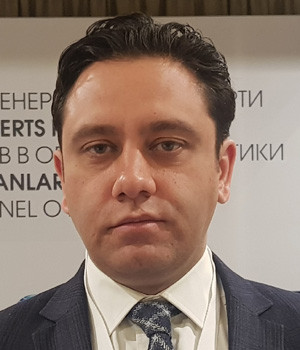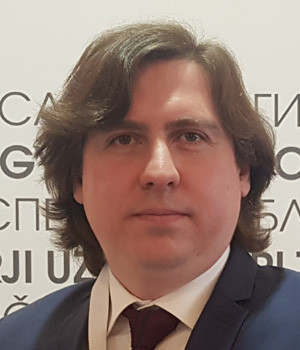It is high time that politicization of projects in the energy field was reduced – energy experts from Bulgaria, Turkey, Serbia and Russia agreed at a discussion on the development of the gas projects in the Balkans held in Sofia.
Turkish Stream gas pipeline is important for Bulgaria and its economy, Dimitar Shterev, senior expert in Bulgartransgaz said. In his view, Bulgaria will have the opportunity to transit gas again when it joins the extension of the Turkish Stream. Dimitar Shterev reminded that on January 1, 2020, the gas supply route will change and natural gas supplies will come from Turkey.
 The first thing Bulgaria must do is form a long-term energy policy and every Bulgarian government must follow this strategy, Bulgaria’s former Minister of Economy and Energy Rumen Ovcharov commented. In an interview for Radio Bulgaria Rumen Ovcharov said that Bulgaria lost a lot from the suspension of the South Stream gas project due to short-sited policy:
The first thing Bulgaria must do is form a long-term energy policy and every Bulgarian government must follow this strategy, Bulgaria’s former Minister of Economy and Energy Rumen Ovcharov commented. In an interview for Radio Bulgaria Rumen Ovcharov said that Bulgaria lost a lot from the suspension of the South Stream gas project due to short-sited policy:
Turkey played its cards well at the expense of Bulgaria. Turkey will have what Bulgaria lost. That is why this country is turning into a Balkan gas hub slowly and surely.
Rumen Ovcharov reminded the failed large-scale projects Nabucco, South Stream and Belene, which in his words could have made this country a regional energy center. Mr. Ovcharov also accentuated on the political aspects of their failure:
Bulgaria was an energy center and all countries envied us. Unfortunately, these projects were suspended due to bad political decisions and the fact that Bulgaria succumbed to geopolitical pressure. Now, instead of transiting gas to Turkey, Bulgaria will import gas from its neighbor.
 Volkan Özdemir, Director of the Institute for Energy, Markets and Policies (EPPEN) also accentuated on the political nuance of the large energy projects.
Volkan Özdemir, Director of the Institute for Energy, Markets and Policies (EPPEN) also accentuated on the political nuance of the large energy projects.
Five years ago Bulgaria suspended the South Stream gas pipeline project under the pressure of the European Union. This was good news for Turkey, because the Turkish Stream gas project was born due to the failure of the South Stream. But now, if Greece and especially Bulgaria are unable to use gas from the Turkish Stream and succumb to pressure by the EU, then these countries will experience huge conflicts between their national interests and the requirements of Brussels. Perhaps, such contradistinctions can be avoided if they don’t take heed of Brussels to the letter.
Turkey partners seriously with Russia, in order to fulfill the Turkish Stream gas pipeline project, thinking of the energy security in the Balkans and Southeast Europe, Volkan Özdemir pointed out and added that energy security is a very expensive service.
 Politicization is the main problem of the European and the Balkan gas markets, Alexey Grivach, Deputy Director of Russia’s National Energy Security Fund says. The Russian gas is an opportunity for Europe to diversify its energy supplies, Alexey Grivach contends and adds:
Politicization is the main problem of the European and the Balkan gas markets, Alexey Grivach, Deputy Director of Russia’s National Energy Security Fund says. The Russian gas is an opportunity for Europe to diversify its energy supplies, Alexey Grivach contends and adds:
The natural gas business is a sector with long-term development. It develops in the course of many decades and is not a sector which shows its effects immediately. The development of these projects requires huge confidence, political determination and good infrastructure, Alexey Grivach told Radio Bulgaria.
The Editor-in-Chief of the Serbian Balkan Magazine Jelica Putniković commented that Turkish Stream is an important industrial project for Serbia which would guarantee the future energy security of this country.
English version: Kostadin Atanasov
Photos: Sevda DukkanciIn August 2025, Bulgaria’s annual inflation rate stood at 5.3%, same as in July, according to data from the National Statistical Institute. Monthly inflation in August dropped to 0.1%, compared to 1.7% in July. Inflation measured from..
A Bulgarian company is expanding its production of laser cutting machines in the Sofia-Bozhurishte Industrial Park, the Ministry of Economy announced. The investment is worth 2 million leva (over 1 million euros). The company will build a new..
The tariffs imposed on European goods by the Trump administration are expected to have both direct and indirect effects on Bulgarian exports. The Ministry of Economy and Industry has calculated the direct impact at €468 million, while..

+359 2 9336 661
